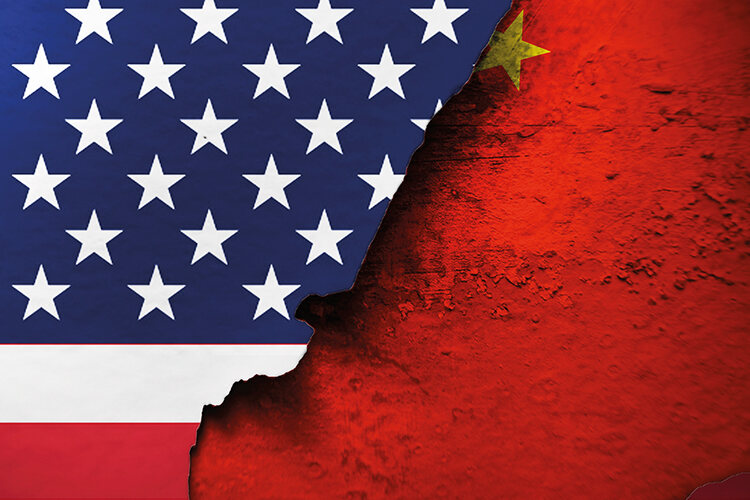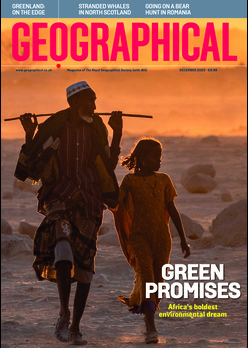
Tim Marshall considers the implications of the world’s shifting balance of power

Geopolitical Hotspot
This year will see the shape of the major geopolitical forces of the 21st century come into sharper focus. Four anniversaries in 2024 will help us to understand how the tectonic plates of big power politics have moved.
The first is the 75th anniversary of the formation of the North Atlantic Treaty Organization (NATO). In April 1949, the most powerful military alliance in history came into being. The USA and 11 other countries signed up to a treaty that now binds 31 countries together. Sweden will probably become the 32nd this year.
After the Second World War ended, the Americans wanted to go home, but the perceived threat from the Soviets persuaded them to end their long-term policy, first articulated by Thomas Jefferson in 1801, that the USA would pursue ‘honest friendship with all nations, entangling alliances with none’. NATO was among the most important of the international institutions that emerged from the war, many of which, such as the IMF and World Bank, were dominated by the Americans.
The second anniversary is in June, marking 25 years since the NATO bombing of Serbia to force Belgrade’s army out of Kosovo. In 1999, NATO was still at its height. The bipolar world of the Cold War was over, Russia was on its knees and the Americans were enjoying their ‘unipolar’ moment.
And then things began to change. China’s rise accelerated. At the beginning of this century, Beijing was finally in a position where it could seriously challenge American hegemony and build credible alternatives to the institutions created in the wake of the Second World War. Under President Vladimir Putin, Russia began to rebuild its economy and military, and fully supported undermining Western dominance. It joined China in an ‘unlimited friendship’ that, while a marriage of convenience between two authoritarian states, is still a powerful one.
Al Qaeda helped. Osama Bin Laden had his own agenda, but after 9/11, America’s focus was drawn to areas of limited strategic importance to Washington, such as Afghanistan and Iraq, which benefited China and Russia. For 20 years, they enjoyed an environment in which America’s diplomatic, economic and military bandwidth was narrowed. The 2008 financial crash compounded the situation. During this time, China made diplomatic and economic gains around the globe and Russia went into Georgia (2008), Ukraine (2014) and Syria (2015) with few negative repercussions for Moscow.
This February is the tenth anniversary of Russia’s seizure of Crimea. The transfer of territory by force was a throwback to a previous age. It took the mass invasion of Ukraine in 2022 for NATO, the EU and the advanced industrialised nations to realise that if a stand wasn’t made, Putin’s revanchist mindset would only be emboldened.
The fourth anniversary is in October, when the Chinese Communist Party will oversee celebrations marking 75 years since the establishment of the People’s Republic of China (PRC). Although NATO and the PRC came into being at the same time – in a sense, they are different ages. As an institution, NATO could be described as mature. China may be an ancient nation, but the PRC is young and believes its best days are ahead of it.
NATO and the PRC aren’t direct rivals, but they are symbolic of the shift in the tectonic plates. NATO was revitalised by the Ukraine crisis, but if political support for Kyiv continues to wane, and Russia triumphs, then there’s a danger that French president Emmanuel Macron’s overblown 2019 statement that ‘NATO is brain dead’ becomes true. Moscow and Beijing would be confident that this was proof of the belief, held by both Putin and Xi Jinping, that the Western world is in terminal decline.
The leadership in Iran shares that view. Tehran has little in common with Beijing and Moscow, but together, this axis of authoritarians is taking on the USA and its allies in three theatres: Ukraine, the Middle East and, by forcing the USA to commit forces to the South China Sea, Taiwan.
The post-war order, as classically understood, is over. We’re deep into an unstable multi-polar world, but there are signs that we’re heading into a new form of bipolar world and Cold War 2.0.
If so, it will be recognisable but different to the previous iteration. Then, there was only one major power taking on the Americans and economically, if not militarily, the Soviet Union was a pygmy. Now China is an economic, military and political behemoth, has Russia as a junior partner, and Iran, with its proxy armies, as a fellow traveller.
The advanced industrialised democracies still have more military and economic clout than the Axis powers. Whether or not they have the confidence and the will to stand up to authoritarians is less clear.




